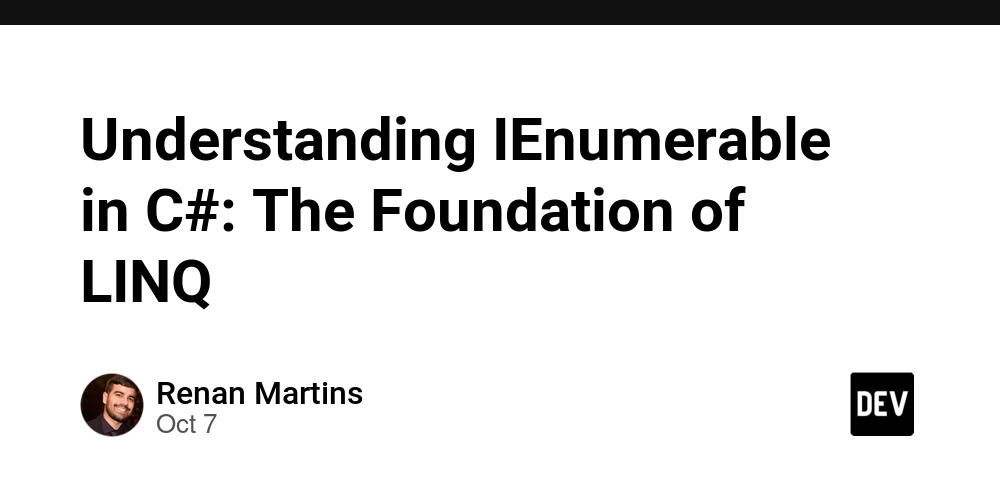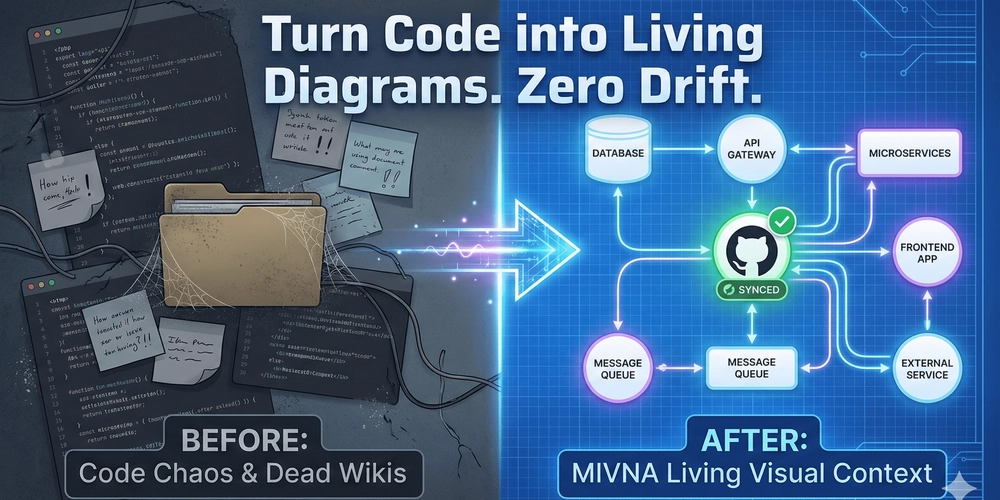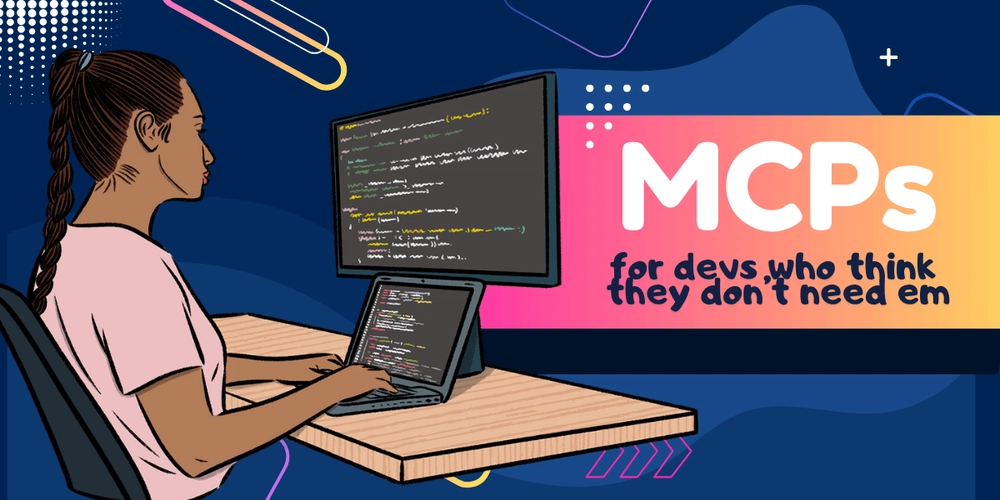If you’ve ever used a foreach loop in C#, you’ve already been using IEnumerable.
It’s one of the most fundamental interfaces in .NET and forms the foundation of LINQ.
What is IEnumerable?
IEnumerable represents a sequence of elements that you can iterate over, one by one.
It powers the foreach loop.
var numbers = new List<int> { 1, 2, 3 };
foreach (var n in numbers)
{
Console.WriteLine(n);
}
Behind the scenes, foreach calls GetEnumerator(), which returns an iterator.
The Interface Definition
Here’s the simplified definition of IEnumerable:
public interface IEnumerable<out T>
{
IEnumerator<T> GetEnumerator();
}
It’s surprisingly simple. It just promises that any type implementing it can return an IEnumerator.
And what’s IEnumerator? It’s another interface that knows how to move through a sequence:
public interface IEnumerator<T> : IDisposable
{
T Current { get; }
bool MoveNext();
void Reset(); // rarely used in practice
}
Iterating Without foreach
Since foreach is just syntactic shortcut, you can do the same manually:
var numbers = new List<int> { 1, 2, 3 };
var enumerator = numbers.GetEnumerator();
while (enumerator.MoveNext())
{
var current = enumerator.Current;
Console.WriteLine(current);
}
Custom Implementation Example
You can also implement IEnumerable yourself.
Here’s a simple example that generates even numbers up to a maximum value:
public class EvenNumbers(int last) : IEnumerable<int>
{
public class EvenNumber(int last) : IEnumerator<int>
{
private int _current = -2;
public bool MoveNext()
{
_current += 2;
return _current <= last;
}
public void Reset() => _current = -2;
int IEnumerator<int>.Current => _current;
object? System.Collections.IEnumerator.Current => _current;
public void Dispose() { }
}
public IEnumerator<int> GetEnumerator() => new EvenNumber(last);
System.Collections.IEnumerator System.Collections.IEnumerable.GetEnumerator() => this.GetEnumerator();
}
Usage:
var evens = new EvenNumbers(10);
foreach (var e in evens)
Console.WriteLine(e);
// Output: 0, 2, 4, 6, 8, 10
Notice that the _current always starts in an invalid position and has the right value after the first call of MoveNext().
Why is it Important?
LINQ methods like .Where(), .Select(), and .OrderBy() all extend IEnumerable.
Without it, LINQ wouldn’t exist.
Example:
var numbers = Enumerable.Range(1, 5);
var squared = numbers.Select(x => x * x);
Console.WriteLine(string.Join(", ", squared));
// Output: 1, 4, 9, 16, 25
Deferred Execution
A powerful feature of IEnumerable is deferred execution.
LINQ queries aren’t run immediately, they’re only executed when you iterate.
var numbers = Enumerable.Range(1, 5);
var query = numbers.Where(n => n % 2 == 0);
// Nothing happens yet!
foreach (var n in query)
Console.WriteLine(n); // Execution happens here
This allows efficient chaining of operations without unnecessary work.
Performance Notes
-
IEnumerableonly supports forward iteration.
You can’t access items by index or know the count without iterating. - For random access or collection size, use
ICollectionorIList. - Best suited for streaming data and large sequences where you don’t want everything in memory at once.
Key Takeaways
-
IEnumerabledefines the contract for iteration in C#. - It powers
foreachand enables LINQ. -
IEnumeratordrives iteration withMoveNext()andCurrent. - LINQ queries on
IEnumerableuse deferred execution. - For advanced operations like indexing, prefer
IListorICollection.
✅ That’s all, folks!
💬 Let’s Connect
Have any questions, suggestions for improvement, or just want to share your thoughts?
Feel free to leave a comment here, or get in touch with me directly on LinkedIn — I’d love to connect!



